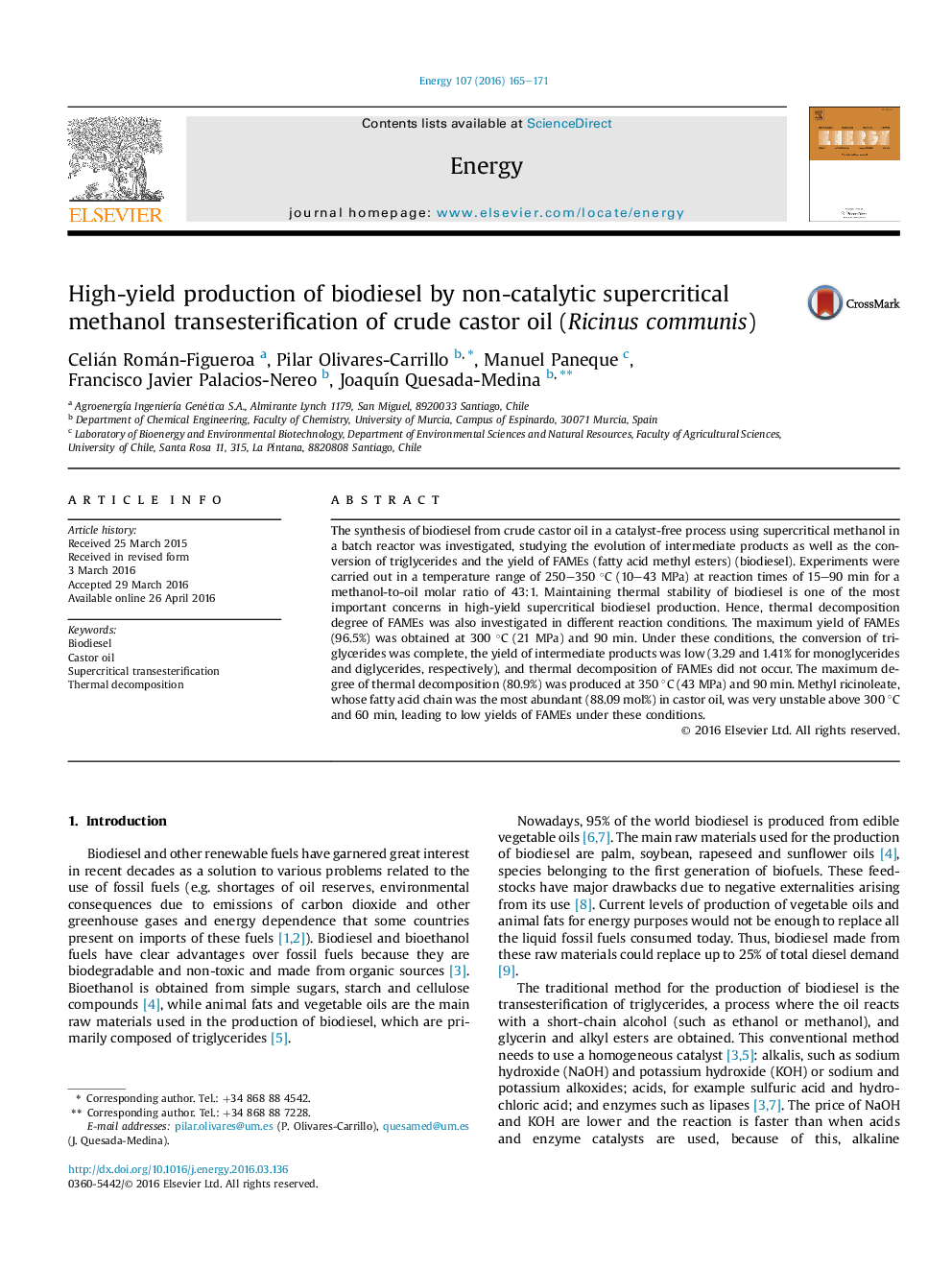| Article ID | Journal | Published Year | Pages | File Type |
|---|---|---|---|---|
| 1730828 | Energy | 2016 | 7 Pages |
Abstract
The synthesis of biodiesel from crude castor oil in a catalyst-free process using supercritical methanol in a batch reactor was investigated, studying the evolution of intermediate products as well as the conversion of triglycerides and the yield of FAMEs (fatty acid methyl esters) (biodiesel). Experiments were carried out in a temperature range of 250-350 °C (10-43 MPa) at reaction times of 15-90 min for a methanol-to-oil molar ratio of 43:1. Maintaining thermal stability of biodiesel is one of the most important concerns in high-yield supercritical biodiesel production. Hence, thermal decomposition degree of FAMEs was also investigated in different reaction conditions. The maximum yield of FAMEs (96.5%) was obtained at 300 °C (21 MPa) and 90 min. Under these conditions, the conversion of triglycerides was complete, the yield of intermediate products was low (3.29 and 1.41% for monoglycerides and diglycerides, respectively), and thermal decomposition of FAMEs did not occur. The maximum degree of thermal decomposition (80.9%) was produced at 350 °C (43 MPa) and 90 min. Methyl ricinoleate, whose fatty acid chain was the most abundant (88.09 mol%) in castor oil, was very unstable above 300 °C and 60 min, leading to low yields of FAMEs under these conditions.
Related Topics
Physical Sciences and Engineering
Energy
Energy (General)
Authors
Celián Román-Figueroa, Pilar Olivares-Carrillo, Manuel Paneque, Francisco Javier Palacios-Nereo, JoaquÃn Quesada-Medina,
